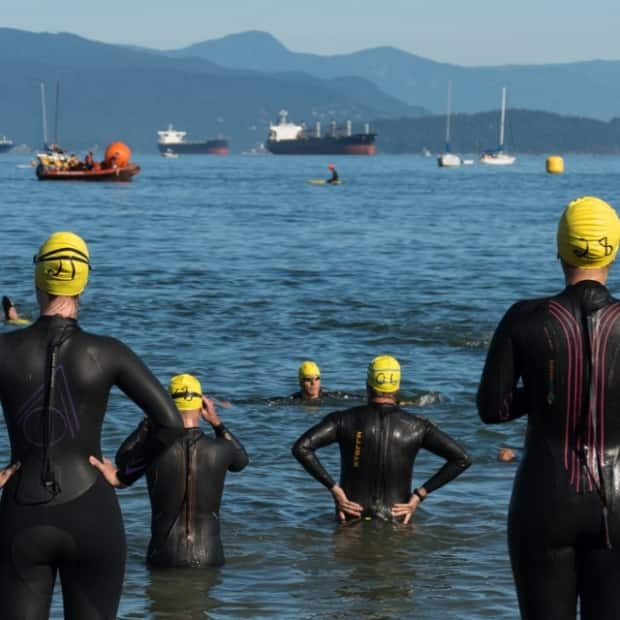Cold water swimming offers some a thrill and respite from the pandemic
People are turning to different coping mechanisms during life amid the pandemic, but for some coastal-dwelling British Columbians, dipping into icy cool water has been a source of relief and respite this winter.
Craig Stewart, president of the Vancouver Open Water Swim Association, says there's nothing like swimming outside under open skies.
"I usually compare it to cycling in a gym versus cycling outside. For me, there's no comparison. I want to be outside. I want to be in nature and swimming is no different," Stewart said.
The waters around B.C. can dip to a frigid 6 C or 7 C. The water itself can be quite opaque in the winter, Stewart said, and it can be unnerving to not see to the bottom.
But Stewart says the challenge is part of the draw.
"Part of the draw is it's like an inoculation. You are choosing to suffer a little bit and then endure it, and you feel good for having done that," he said.
Deborah Calderon of Powell River is part of a local swimming group — the Powtown Popsicles — who go for a socially distanced swim or dip every day.
"Everybody's got a completely different reaction," Calderon said. "When I get out [of the water], I get calm, which is what I need."
She says the activity has been a huge source of comfort during the pandemic.
"It's probably the biggest thing I've done to reduce isolation, to make sure I get outside with a bit of a purpose, to feel that kind of rush and then come out and then on with your day," Calderon said.

Tips for open water swimming
Like any new activity, Stewart says it's important to be prepared and do your research. Here are some other tips if you want to try cold water swimming.
1) Don't swim alone.
It's always good to go with other people so that you can look out for one another, said Stewart. This is especially important if your body temperature plunges after coming out of the water and you need help.
2) Take it slowly.
"The worst thing you can do is to jump into cold water and think you're going to be fine. No, that gives you cold water shock," Stewart said, noting the last time he went cold water swimming, it took him 10 minutes to get used to the cold water.
Getting slowly acclimatized is important to help your body adjust to the conditions.
Wearing proper gear — like layering on a swim cap and a wetsuit — can also help you stay warm in the water.
3) Know your water.
"Don't jump into water you don't know. You don't know how deep it is, you don't know where the currents are," said Stewart, noting that ocean currents in particular can be very, very strong.
4) Listen to your body.
It's important post-swim or post-dip to make sure you refuel and have hot beverages on hand.
"It gives your body fuel because you've just been spending at an incredible rate. And have layers of warm clothing," he said.
Finally, Stewart said, learn about the sport and try it out with people who are experienced.
"It's inherently rewarding. You feel good. You feel tough. But joyful."

